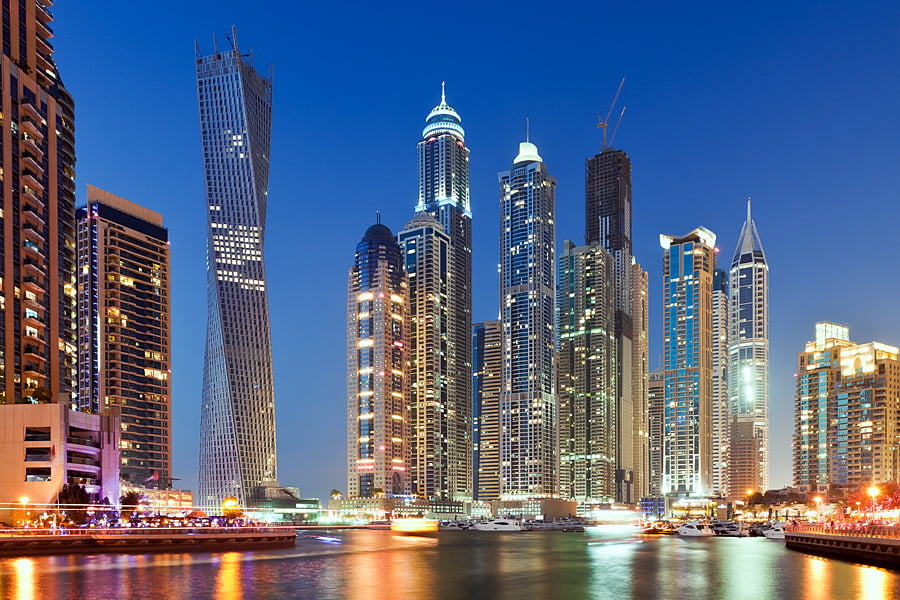Dubai, known for its glittering skyscrapers and luxury, is also a top destination for real estate investors. This article explores the key aspects of finance and real estate investment in Dubai, offering practical advice to maximize your returns.
Table of Contents
Toggle1. Why Invest in Real Estate in Dubai?
Security and Stability
Real estate in Dubai is often seen as a safe investment due to the stable and growing nature of the market. Unlike stocks and other financial assets, real estate here is less volatile and offers long-term stability. The ongoing demand for housing and commercial spaces reinforces this perception.
Capital Appreciation
Historically, properties in Dubai tend to increase in value over time. By investing in high-growth potential areas, you can benefit from capital appreciation, enhancing your net worth. Developments like Dubai Marina and Downtown Dubai are perfect examples of this trend.
Passive Income
Rental real estate in Dubai generates regular passive income in the form of rent. These revenues can cover your monthly expenses and even generate additional profits. A well-managed portfolio can offer a stable and recurring source of income, particularly attractive to investors seeking continuous profitability.
2. Assessing Your Financial Capacity
Budget and Financing
Before investing, it’s crucial to understand your financial capacity. Evaluate your savings, income, and expenses to determine how much you can invest without compromising your financial stability. Explore available financing options, such as mortgages offered by local and international institutions, and compare interest rates and terms.
Debt-to-Income Ratio
Maintaining a healthy debt-to-income ratio is essential for securing favorable financing. This ratio is calculated by dividing your total debts by your total income. Lenders in Dubai generally prefer a ratio below 36%. Ensure your debt levels remain within acceptable limits to avoid financial difficulties and maximize your chances of obtaining a loan.
3. Real Estate Investment Strategies in Dubai
Rental Investment
Rental investment involves purchasing properties to lease to tenants. This strategy generates regular passive income and can offer tax benefits. It’s important to choose locations attractive to tenants, such as areas near public transportation, schools, shops, and business centers. Neighborhoods like Jumeirah Lake Towers and Business Bay are particularly popular.
Buy-Renovate-Sell (Flipping)
Flipping involves buying properties below market value, renovating them, and selling them at a higher price. This strategy can generate quick profits but also carries risks and requires expertise in renovation and project management. Dubai offers numerous opportunities in this field, particularly in rapidly developing areas.
Investing in REITs
Real Estate Investment Trusts (REITs) allow you to invest in real estate without physically owning properties. REITs are publicly traded companies that own and manage real estate portfolios. Investing in REITs offers increased liquidity and diversification while avoiding the hassles of direct property management.
4. Analyzing the Dubai Real Estate Market
Location Research
Location is one of the most critical factors in real estate investment. Study local market trends, including population growth, infrastructure, and economic development. Expanding areas like Dubai South and Mohammed bin Rashid City generally offer better opportunities for capital appreciation and rental yield.
Property Evaluation
Before buying a property, conduct a thorough evaluation to determine its true value. Consider the property’s condition, rental income potential, and necessary renovation costs. Use online valuation tools and consult local real estate experts to obtain accurate estimates and avoid unpleasant surprises.
5. Managing Real Estate Investments
Property Management
Managing rental properties can be time-consuming. Consider hiring a property management company to handle daily tasks like finding tenants, collecting rent, and maintenance. This allows you to focus on other aspects of your investment portfolio and ensures professional management of your properties.
Maintenance and Renovations
Maintaining your properties in good condition is essential for attracting and retaining tenants. Budget for regular repairs and renovations. Strategic improvements, such as modernizing kitchens and bathrooms, can increase rental and resale value. In Dubai, aesthetics and quality are particularly important for appealing to potential tenants and buyers.
6. Legal and Tax Aspects in Dubai
Legal Compliance
Ensure your real estate investments comply with all local regulations, including building codes, rental laws, and safety standards. Consult a real estate lawyer to help navigate complex legal aspects. In Dubai, laws can change quickly, so staying informed and compliant is crucial.
Tax Benefits
Investing in real estate in Dubai offers several tax benefits. You can deduct mortgage interest, property taxes, and management expenses. Depreciation also allows you to reduce your taxable income. Consult a tax advisor to maximize your tax benefits and avoid penalties. Dubai’s favorable tax regime is a major advantage for international investors.
Conclusion
Investing in real estate in Dubai can be a lucrative and stable financial strategy if executed well. By understanding financial aspects, adopting prudent investment strategies, and effectively managing your properties, you can maximize your returns and build a prosperous real estate portfolio. Stay informed about market trends and adapt your strategies accordingly to continue benefiting from your real estate investments in this dynamic and ever-evolving city.



